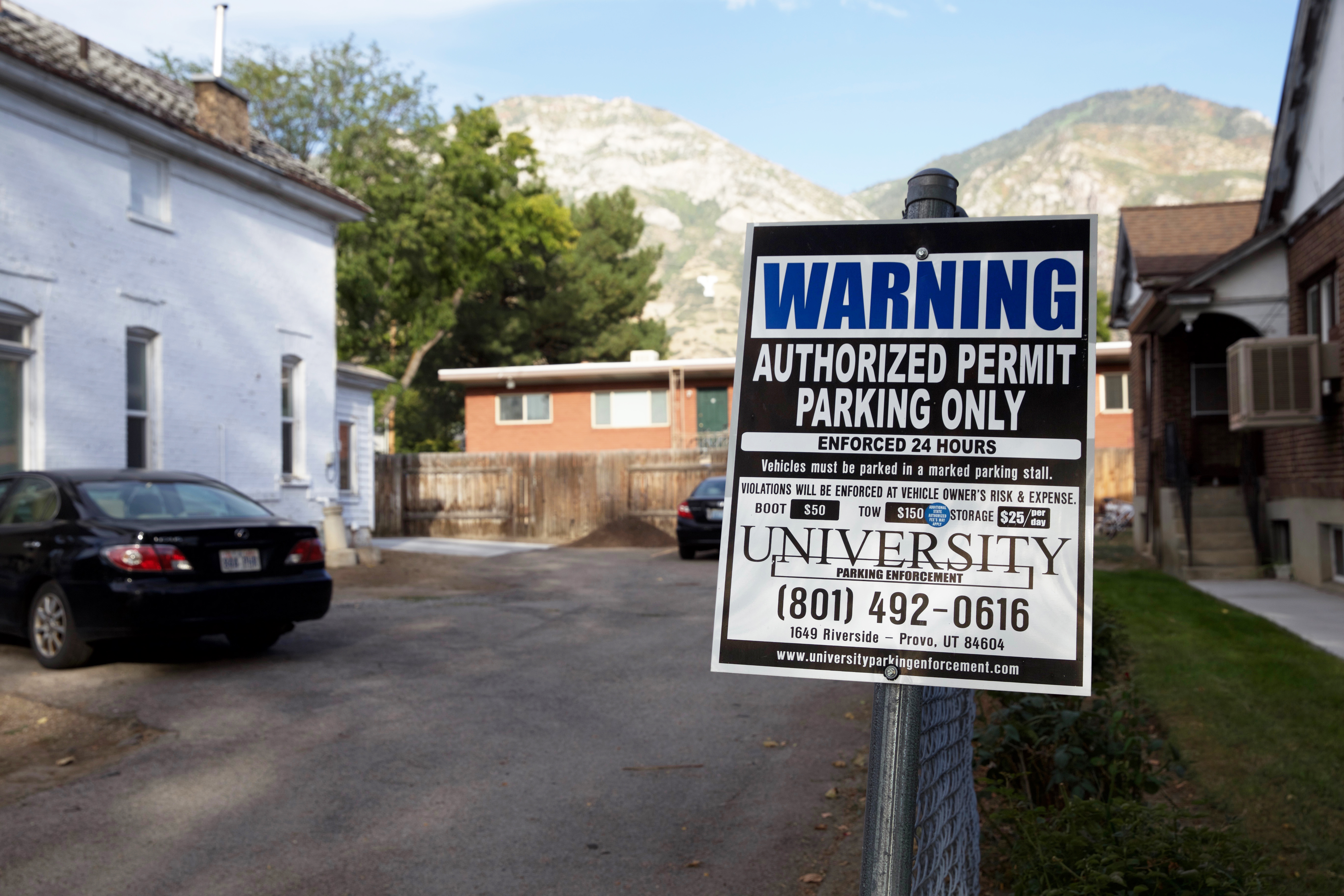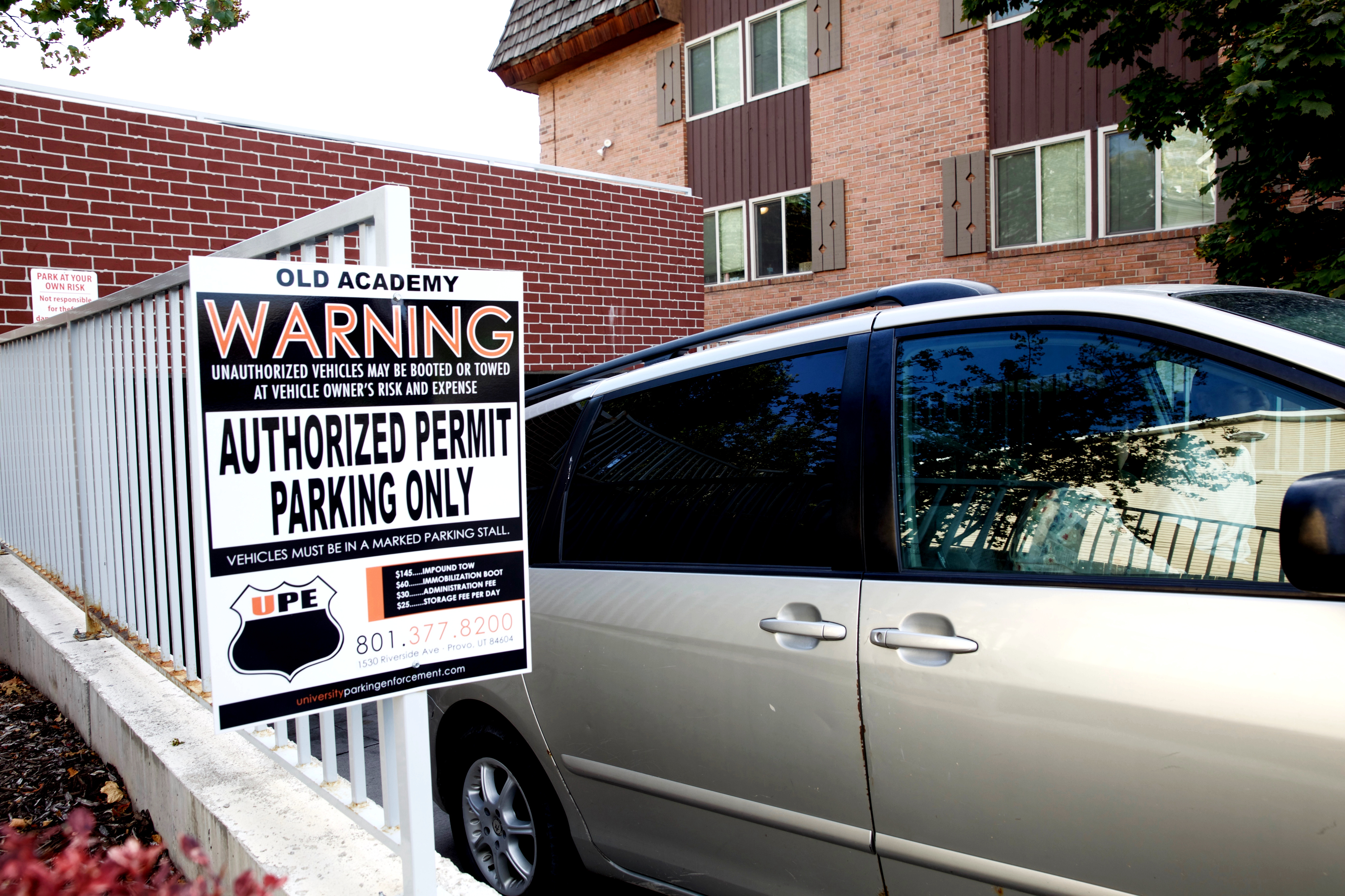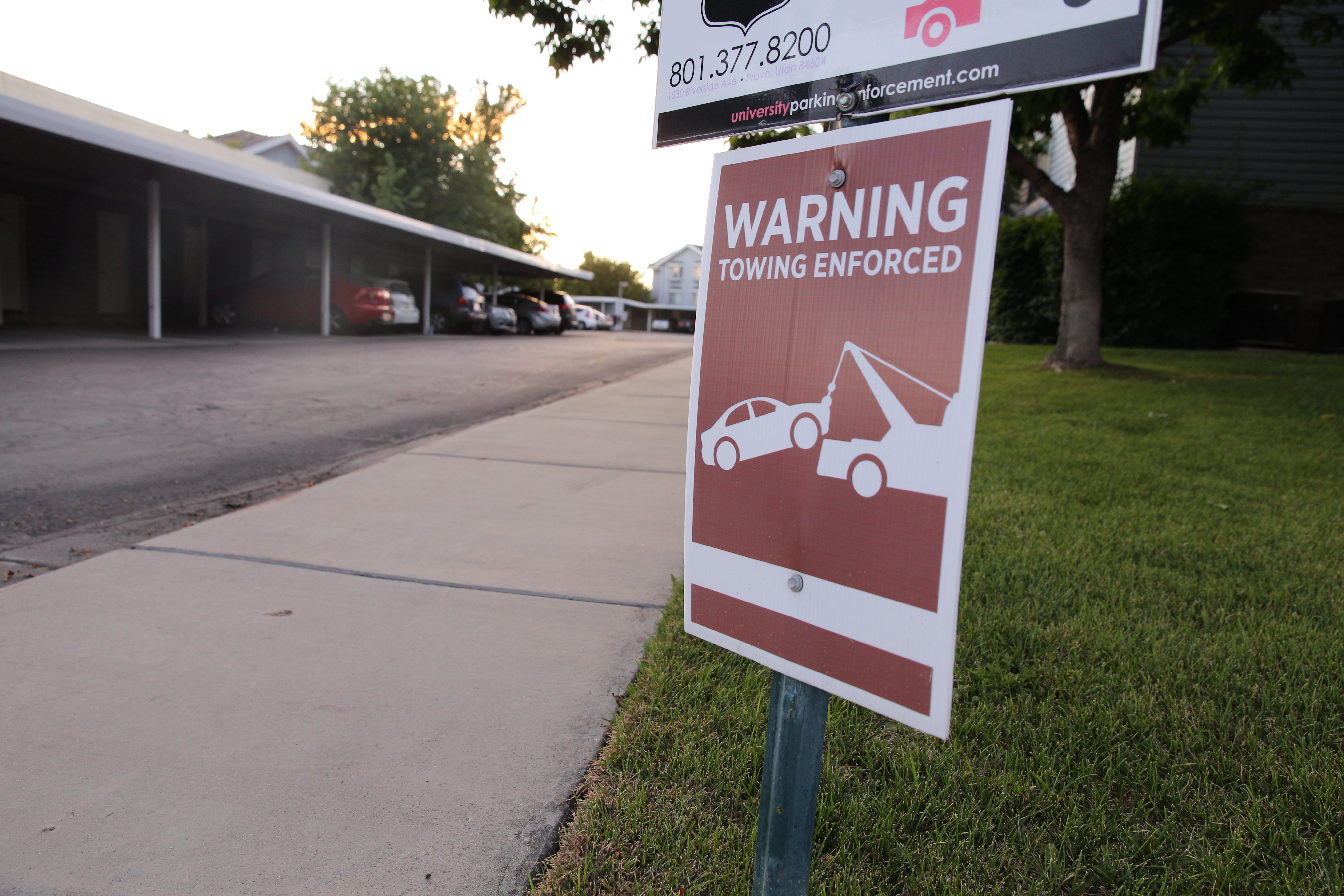
Jaymon McDevitt woke up one morning to find his car had disappeared.
He searched the whole lot, but when he came back to the spot he remembered parking, the daylight revealed something he hadn’t noticed when parking the previous night — the lines of the parking spot had been drawn in chalk.
McDevitt contacted University Parking Enforcement. Sure enough, they had towed his car without notifying him and charged him $175 to reclaim it.
“Sometimes it’s just a little frustrating because you feel like they’re kind of out to get you,” McDevitt said, adding that $175 is a significant amount of money for a college student.
McDevitt isn’t alone — it isn’t uncommon for students living in Provo to have their cars towed or booted. Changes to Provo parking ordinances in 2013 were aimed at eliminating predatory towing, but residents’ experiences show these changes addressed only one small part of Provo’s parking problem.

BYU student Brad Hornfischer attributes the problem to the lack of available parking more than to parking enforcement officials.
“The purpose of parking enforcement is to make sure that there are spots available for the people who pay and live there, and I understand that,” Hornfischer said. “That’s a worthy goal.”
He suggested several possible solutions that go beyond the 2013 ordinance, such as having complexes compete for residents based on parking accommodations, opening up more of Provo parking to students and establishing a student-run agency to advocate for better parking and handle interactions with University Parking Enforcement.
He also suggested that rather than further updating parking ordinances, Provo should change building codes to reflect residents’ needs. He said the city should mandate housing units provide sufficient parking for all residents.
Hornfischer has had his car booted three times and said that on all three occasions, the signs or lines indicating a no-parking zone were either not visible at night, not clearly marked or not present at all.
He noted that with so little parking, residents are often left without options.

For example, Belmont Condominiums does not have enough parking spaces for all its residents. Seven Peaks Blvd., the street Belmont Condos is on, does not allow long-term or overnight parking. Belmont Rentals Manager Ingrid Staebner said she recommends residents without complex parking passes find street parking on 450 North.
However, 450 North is already home to other student housing complexes, including King Henry, Sparks II and Arcadia. Like Belmont Condos, these complexes do not have a parking spot for every resident. A brief survey found all these complexes also recommend residents without a parking spot try to find street parking.
With multiple housing units using the same streets for overflow parking, many residents are forced to park far away — especially, as Hornfischer pointed out, residents who work nights and are unable to take advantage of first-come-first serve street spots.
Another problem Hornfischer noticed is that University Parking Enforcement officials have no incentive to work with residents who have been booted. If a student wants to appeal or file a complaint, he or she must do so with University Parking Enforcement — the organization who booted the car in the first place. Additionally, students rarely have the resources to sue or pursue a case if their appeal or complaint isn’t recognized.
Hornfischer said the ideas he proposed could increase accountability and incentive for housing units and University Parking Enforcement to accommodate Provo residents.




